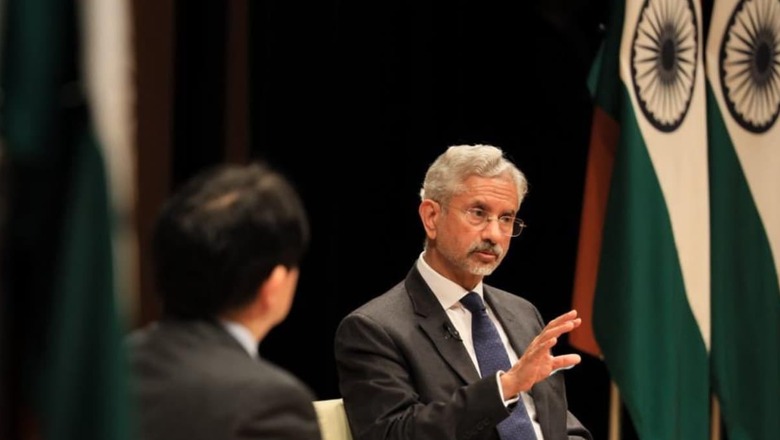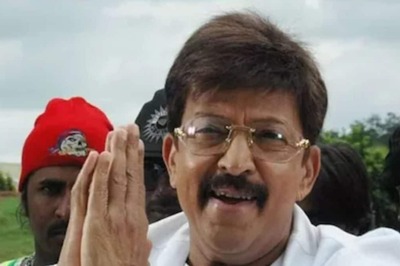
views
Amid mounting tensions in the Taiwan Strait in the wake of growing Chinese aggression, External Affairs Minister S Jaishankar on Friday stressed the need for global stability, suggesting that the last thing that the world needs to see is “any kind of disturbance.” Jaishankar’s remarks came in response to a question during an interaction at the Nikkei Forum in Japan.
Tensions have risen sharply in recent years over Taiwan, the democratically ruled island that China claims as its own. China recently announced that it will boost its defense spending by 7.2% this year, fueling an already big military budget as Beijing hardens its stance on the island. Taiwan, whose government rejects Beijing’s sovereignty claims, has complained in recent years that China has been using so-called grey-zone warfare. Notably, Beijing has also dropped the mention of “peaceful reunification” in a government report delivered in the rubber-stamp parliament on Tuesday.
‘Do sanctions work?’
During his visit to Japan, Jaishankar was asked whether India would impose sanctions in the event of a “Taiwan contingency” if Russia and North Korea took part in Chinese aggression. In response, Jaishankar said, “By and large it has not been India’s foreign policy method really to do the sanctions issue.” He underlined that sanctions are often rooted in Western or G7 approaches, questioning their efficacy and broader impact.
Very good to meet @moteging, Secretary General of LDP again.Appreciate his friendship as well as support for our partnership.
Fruitful conversation on ways to strengthen ties in an uncertain world. pic.twitter.com/2Pfo47s2N5
— Dr. S. Jaishankar (Modi Ka Parivar) (@DrSJaishankar) March 8, 2024
“The only time when we have strongly advocated for sanctions ourselves was against South Africa during the apartheid period. At that time, most of the developed countries did not want to impose sanctions,” he said. “It’s a big debate. …Do sanctions really work, or they don’t work? What is the cost? What is the cost to people who apply sanctions? …Not every country in the world thinks that this is the immediate, right, and effective way of conveying what you want to convey,” he added.
‘World is very disturbed’
Elaborating on India’s response to a Taiwan contingency as a partner of Japan, Jaishankar said, “Today, the state of the world is very disturbed. We are seeing conflicts. We saw covid. There are very big economic issues which are below the surface.” Additionally, the external affairs minister refrained from discussing specific actions, asserting that he should not elaborate further as a foreign minister.
“The last thing that the world needs to see is any kind of disturbance, you know, at this moment. How to strengthen the stability and the growth and development of the world should be a common objective. Beyond that, I think, as a foreign minister, I should not say anything to you.” His veiled response was received with applause from the audience. India-Taiwan relations, while unofficial, have gradually strengthened in recent years. Both sides have sought to enhance bilateral trade and investment through various mechanisms.
Last week, China expressed outrage against an Indian TV channel for broadcasting an interview with Taiwan Foreign Minister Joseph Wu, where he raised concerns over China’s growing assertiveness in the South China Sea. In a statement issued on March 1, the Chinese embassy in India said the interview provided “a platform for advocating Taiwan independence and disseminating false information,” which it deemed a serious violation of the one-China principle. Responding strongly to Chinese criticism, the Taiwan Foreign Office said, that neither India nor Taiwan are part of the People’s Republic of China or “its puppets.”
















Comments
0 comment